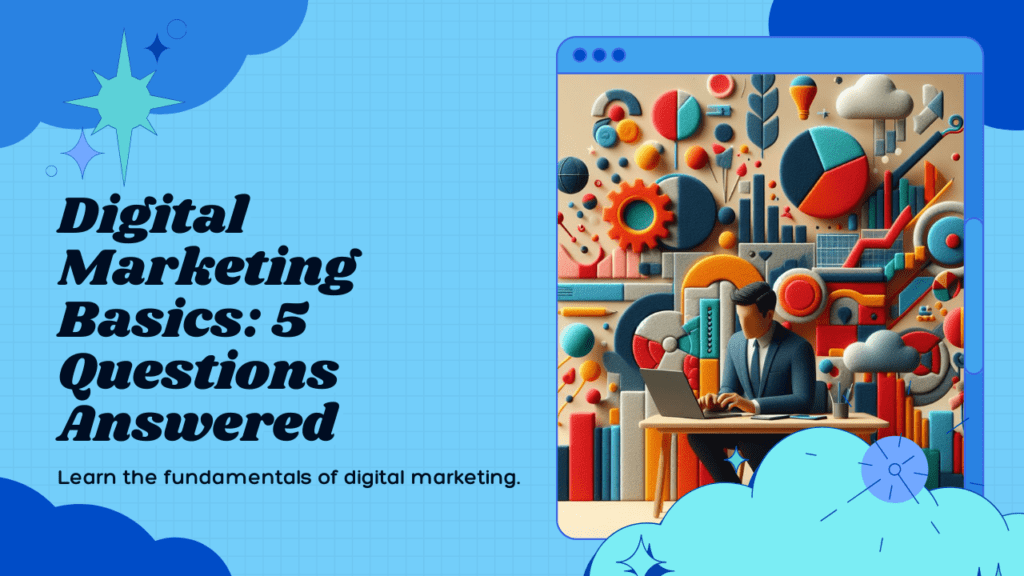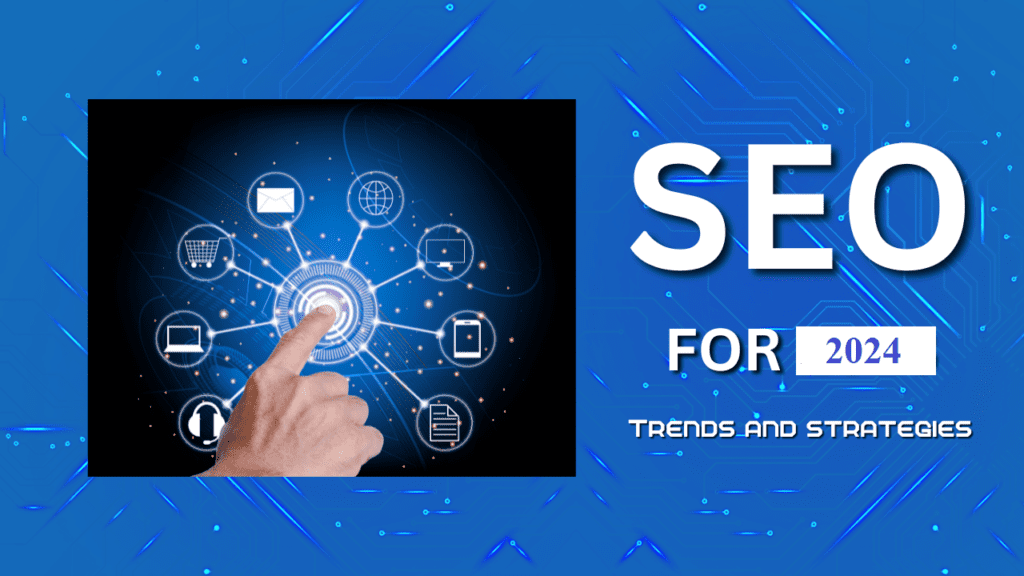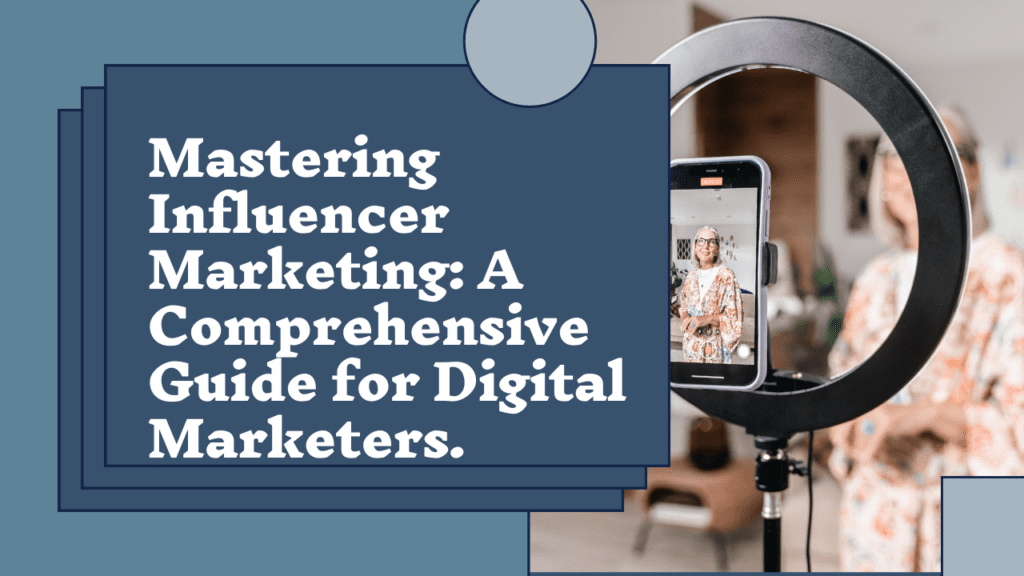Digital marketing is the powerhouse driving modern business Growth. Curious about its significance and relevance? From the basics of digital marketing to its Diverse types understand why this strategy is pivotal. Discover how KPIs shape Success and unlock the key to crafting your own effective digital promotion Strategy. Dive into this dynamic realm where data-driven decisions reign supreme and learn how businesses harness their potential for exponential growth. Explore the ‘what,’ ‘why,’ and ‘how’ behind this game-changing tool that shapes Brands and captivates audiences. Embrace the essentials and wield the power of digital advertising to propel your business forward.
What is Digital Marketing?
It involves promoting products, services, or brands utilising online channels such as social media, websites, email, as well as search engines. It encompasses various strategies to reach and engage target audiences, leveraging digital technologies to create awareness, drive traffic, as well as generate leads or sales for businesses.
The digital marketing sector’s worldwide market size is projected to hit $640.2 billion by 2027, experiencing an 18.5% CAGR from 2020 to 2027. [1]
Why is Digital Marketing Important?
In this article on the basics of digital marketing, I should also mention its benefits. In today’s digital era, individuals dedicate a substantial portion of their time to online activities. Digital promotion allows businesses to get to their audience where they already are, enabling targeted and personalised interactions. It offers a cost-effective way to measure, analyse, and adjust promotion campaigns in real-time, enhancing efficiency and maximising ROI.
As of 2023, there are 5.19 billion internet users and 4.88 billion social media users worldwide. On average, internet users spend six hours and 40 minutes online every day.[2]

What types of digital marketing are there?
Content Marketing
One of the basics of digital marketing is content marketing. This encompasses the making and distribution of valuable, pertinent content to captivate and involve a specific audience. It aims to build trust and loyalty, ultimately driving profitable customer action. Content takes many forms, such as blogs, videos, infographics, and podcasts.
Search Engine Optimization (SEO)
SEO concentrates on enhancing a website’s visibility within search engine outcomes. It involves optimising website content, using relevant keywords, building quality backlinks, and enhancing user experience. The aim is to rank higher in search engines such as Google, thereby driving organic traffic.
Social Media Marketing
This form of promotion utilises social media platforms to connect and engage with audiences. It includes making and sharing content, running ads, and fostering communities to increase brand awareness, drive website traffic, and generate leads or sales.
Pay Per Click (PPC)
PPC represents an advertising scheme wherein advertisers remunerate per click on their advertisements. It’s commonly associated with search engine advertising, like Google Ads, allowing businesses to bid for ad placement in search engine sponsored links.
Search Engine Marketing (SEM)
SEM encompasses strategies to increase a website’s visibility in search engine results pages (SERPs) by paid advertising (PPC) and organic SEO techniques. It’s a broader term that includes PPC within its scope.
Email Marketing
This involves sending targeted, personalised messages to a subscriber list via email. It’s used to nurture leads, engage customers, promote content, and drive sales by delivering relevant and timely content to the audience’s inbox.
Affiliate Marketing
It entails collaborating with partners who endorse a company’s goods or services. These partners earn a commission for each sale or action stemming from their Referrals.
Influencer Marketing
This strategy involves collaborating with influencers to promote products or services. Influencers leverage their credibility and reach to endorse brands, often through sponsored content or partnerships.
Mobile Marketing
This focuses on reaching audiences on their mobile devices through SMS, mobile apps, social media, or mobile-optimised websites. It targets users based on their location, behaviour, or preferences.
Video Marketing
It involves creating and using videos to promote products, services, or brands. It’s a versatile medium that can be used across various platforms like social media, websites, and video-sharing platforms. Videos can range from explainer videos and product demonstrations to testimonials and behind-the-scenes content catering to diverse audience preferences.
Marketing Automation
This type utilises software and technology for automating repetitive promoting tasks like email marketing, social media posting, and ad campaigns. It streamlines workflows, nurtures leads, and helps businesses deliver personalised, timely content to their audience at scale.
Native Advertising
Native advertising blends seamlessly into the platform it appears on, matching the style and format of the surrounding content. It’s non-disruptive and aims to provide value to the audience while subtly promoting a product or service.
Inbound Marketing
It prioritises drawing in customers through pertinent and beneficial content rather than intrusive advertisements. It involves strategies like content marketing, SEO, social media, and email promotions to attract prospects to a brand organically.
Sponsored Content
Sponsored content is paid media where brands collaborate with publishers or content creators to produce content that aligns with the publisher’s audience and style. It’s designed to inform or entertain while subtly promoting the sponsoring brand.
Text Messaging
Text message promotion involves sending targeted messages, promotions, or updates directly to a subscriber’s mobile device via SMS. It’s a direct and immediate way to reach customers, often used for alerts, promotions, or customer engagement.
Each of these promotion methods play a unique role in a comprehensive promotion strategy, and combining them strategically can yield powerful results for businesses aiming to reach and engage their target audiences effectively.
What are Key Performance Indicators (KPIs) in Digital Marketing?
The basics of digital marketing involve KPIs. They vary based on campaign objectives but commonly include metrics like conversion rates, click-through rates, website traffic, engagement metrics (likes, shares, comments), cost per acquisition (CPA), return on investment (ROI), customer lifetime value (CLV), and more.
How to Create a Digital Marketing Strategy?
The integral parts of the basics of digital marketing cover developing a digital marketing strategy which involves the following:
- Define Goals: Start by outlining clear, specific, and measurable objectives. Whether it’s brand awareness, lead generation, or sales, goals provide direction.
·
- Know Your Audience: Understand your target demographics, their preferences, behaviour, and where they spend time online. This helps tailor content and choose appropriate platforms.
- Competitor Analysis: Study competitors to identify strengths, weaknesses, and gaps. This helps position your strategy uniquely.
- Content Strategy: Develop engaging, valuable content aligned with audience needs. Use a mix of formats like blogs, videos, infographics, etc., catering to different preferences.
- Choose Channels: Select platforms where your audience is active—social media, SEO, promotional email, etc. Tailor your approach for each channel.
- Allocate Budget: Allocate resources effectively across channels based on their potential ROI. Test and optimise to find the most effective avenues.
- Implement & Monitor: Execute your strategy while closely monitoring performance. Track metrics aligned with your goals (CTR, engagement, conversions, etc.) and adapt strategies accordingly.
- Optimization & Adaptation: Regularly optimise campaigns based on data insights. Adapt to market trends, algorithm changes, and customer feedback for continuous improvement.
- Measure & Report: Measure the success of your strategy against predetermined KPIs. Prepare regular reports to assess performance and make informed decisions for future campaigns.
- Iterate & Improve: Use insights gathered from analysis to iterate and refine your Strategy continuously. Flexibility and adaptation are crucial to staying ahead in the ever-evolving digital landscape.
Digital Marketing Examples:
Examples of successful digital/internet promotion campaigns, including Coca-Cola’s “Share a Coke” personalised bottle campaign, Airbnb’s user-generated content strategy, Nike’s interactive social media campaigns, and Old Spice’s viral video promotion. Dove’s Real Beauty Campaign, UNIQLO’s “Uncover,” American Express’ “Small Business Saturday Campaign, etc. also increased business. Each aspect of digital promotion holds its unique value in reaching and engaging audiences. Successful strategies often combine multiple techniques tailored to specific goals and audience preferences.
Conclusion
In this discussion about the basics of digital marketing, I should mention that Digital marketing leverages online channels like social media, SEO and email to promote brands, reaching audiences in today’s digital landscape. With various types, from content to influencer marketing, it offers targeted interactions. Key to success are KPIs measuring metrics like engagement and ROI. Crafting a strategy involves goal setting, audience understanding, channel selection, and constant optimization. But in this dynamic field, what unique blend of digital strategies can truly captivate your audience? Begin exploring and testing diverse tactics to unlock your brand’s digital potential. What mix of digital strategies will set your brand apart? Start experimenting today to find out!
FAQs
What’s the Future of Digital Marketing?
The future of digital marketing will pivot on hyper-personalisation, leveraging AI and data analytics for tailored customer experiences. Video content, live streaming, and interactive formats will dominate, engaging audiences across diverse platforms. Voice search optimisation and AI-powered chatbots will refine customer interactions. Virtual Reality (VR) and Augmented Reality (AR) will revolutionise immersive brand experiences. Ethical data usage and privacy measures will gain significance, shaping trustworthy consumer relationships. Collaboration with influencers and user-generated content will amplify authenticity. Ultimately, agility in adapting to evolving technologies and consumer behaviours will be paramount, defining success in the dynamic landscape of internet promotion.
What Is a Digital Marketing Agency?
A specialised firm that crafts and executes online strategies to promote brands, products, or services is called a digital marketing agency. It offers a spectrum of services encompassing SEO, social media, content creation, PPC advertising, email campaigns, and analytics. These agencies tailor approaches to target specific audiences, aiming to boost brand visibility, engagement, and conversions. Their expertise lies in utilising online platforms to maximise client reach, enhance online presence, and achieve advertising objectives. Agencies often employ diverse skill sets in design, copywriting, data analysis, and strategy to deliver comprehensive as well as effective internet promotion campaigns for their clients.
What Is Internet Marketing?
Internet/online marketing involves leveraging online channels to promote products, services, or brands. It encompasses various strategies such as SEO, social media promotion, email campaigns, content creation, PPC advertising, and affiliate marketing. The focus is on reaching target audiences across the vast landscape of the internet through websites, search engines, social platforms, and other digital mediums. The goal is to enhance visibility, engage potential customers, drive traffic, and ultimately convert leads into sales or desired actions. Internet promotion harnesses the power of connectivity and online tools to establish and strengthen relationships with a global audience in an increasingly digital world.
How Can I Become a Digital Marketer?
To become a digital marketer, acquire a blend of skills: grasp the fundamentals through online courses or certifications in SEO, social media, content creation, and analytics. Gather practical experience by working on personal projects or internships. Stay updated with industry trends and tools. Develop a portfolio showcasing practical knowledge. Networking within the field, engaging in online communities, and seeking mentorship accelerate growth. Flexibility, creativity, and adaptability are crucial traits. Continuously refine skills, experiment with different strategies, and stay curious to thrive in this dynamic, evolving field.
What Skills Are Needed in Digital Marketing?
Internet marketing demands a blend of technical and creative skills. Proficiency in SEO, SEM, and analytics is key, alongside a strong grasp of social media platforms and content creation. Data analysis skills aid in understanding and optimising campaigns. Copywriting, design basics, and video editing enhance content creation. Adaptability to new tools and trends is crucial, as is the ability to interpret and act on data-driven insights. Soft skills like communication, creativity, and problem-solving amplify effectiveness. A growth mindset, agility in learning, and strategic thinking are essential for navigating the ever-evolving landscape of digital marketing.




Pingback: Mastering Influencer Marketing: A Comprehensive Guide
Pingback: Uncommon PPC Tactics for 2024: Boost Your ROI with Data-Driven Insights - ezine articles